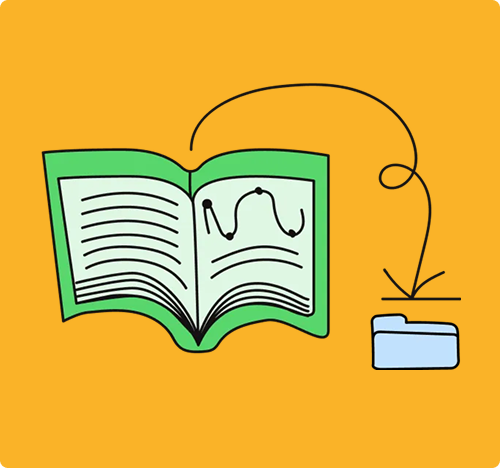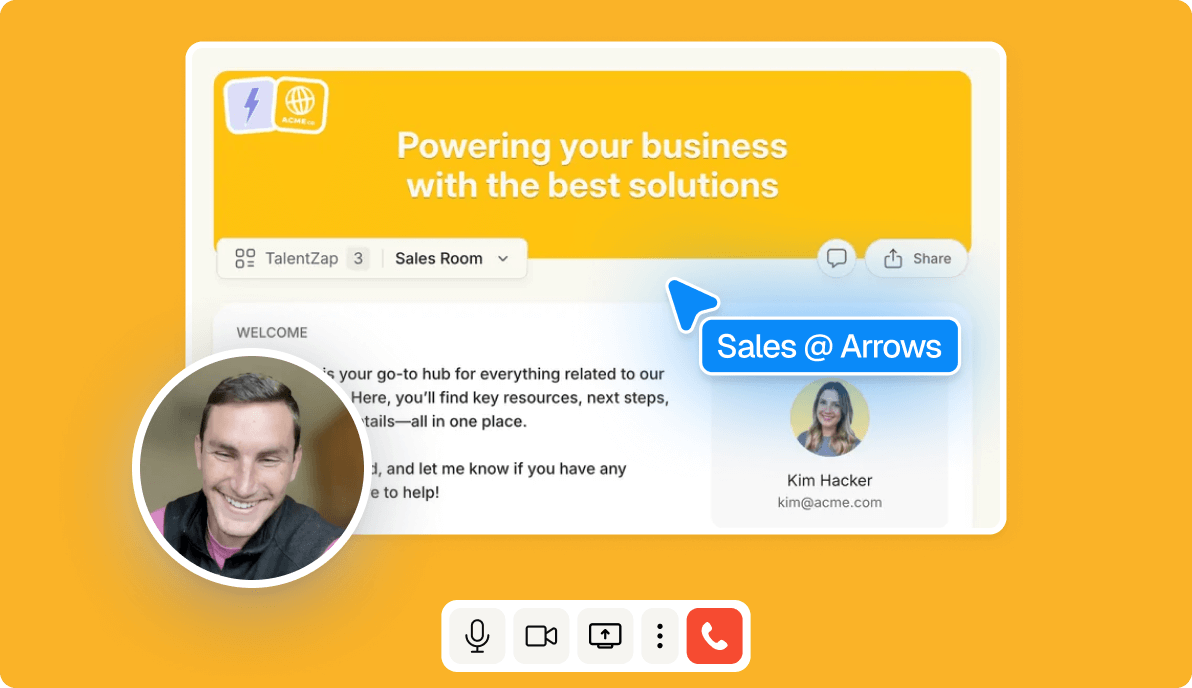Onboarding Therapy #6: The AI Wake-Up Call for Customer Success Teams with Daphne Costa Lopes

.png)
Table of Contents
We recently sat down with Daphne Costa Lopes, Global Director for Strategic Accounts at HubSpot, on Onboarding Therapy to talk about AI in customer success and what it means for CS careers. The conversation was packed with insights about where the industry is going and what CS professionals should be thinking about right now.
Watch the video:
Listen to the podcast:
The Current State of AI in Customer Success
Here's the thing about AI in customer success right now: while it's doing some impressive work in customer support—with some teams using it to handle 60-70% of their tickets—customer success is a different story. The work CS teams do is much more complex, involving strategic thinking and building deep customer relationships, which makes it tougher to use AI effectively.
"The problems that we have are much more complex," Daphne explained. "They are not a how-to or a simple troubleshoot. They are brainstorming sessions and complex situations where there is context that a customer will share that's unique to their organization."
One big challenge? CS teams are dealing with data spread all over the place. A typical CS team uses about 14 different tools, including:
- Product usage data and analytics
- Customer engagement tracking
- Support ticket systems
- CRM platforms
- Communication tools
Getting all this data to work together is crucial before AI can really make a difference.
A Day in the Life: The Reality Check
Let's talk about what this looks like in real life. Daphne shared a story about a CSM she mentors who spent 47 minutes preparing for a single 45-minute customer call. Sound familiar? This CSM has to dig through five different tools just to get ready for one meeting, pulling together product usage data, support history, and project updates. That's right—the prep time actually takes longer than the meeting itself. If this doesn't scream "we need a better way," I don't know what does.
What's Possible with AI Right Now
Despite the challenges, there are some pretty cool things happening with AI in customer success. Here's what's already working:
- Call summaries through tools like Zoom AI and Gong
- Relationship insights from CRM systems
- Churn prediction and analytics
- Automated meeting prep and follow-up
- Customer health scoring
But that's just the beginning. The really exciting stuff is just around the corner. Imagine having AI that can guide your strategic conversations based on historical data, predict customer behavior patterns, or give you real-time insights during calls.
The Wake-Up Call
Now, here's where things got really interesting in our conversation. Daphne dropped a hot take and it's worth paying attention to: "If you're in a company that is not embracing AI right now and their culture is like, 'we're not going to do this, it's too early' or 'we don't trust it'... if I was a CSM, I'd be getting out of there."
Why such strong advice? Because companies that aren't exploring AI now are going to fall behind, and their CS teams will miss out on crucial experience with these new technologies.
Making AI Work for Your Team
Let's get practical. Think of AI like an intern on your team. They're smart and eager to help, but they need training, guidance, and clear tasks to start with. You wouldn't throw an intern into a complex customer situation on day one, and the same goes for AI.
Before jumping into AI tools, you need to get your foundation right. This means knowing where all your customer data lives, having your systems talk to each other, and keeping good records of customer interactions. It's not the exciting part, but it's crucial for success.
Take a page from HubSpot's book: they set up a small experimental team to test new tools like AI before rolling them out broadly. This approach lets them learn what works and what doesn't without disrupting their entire operation. Start small, measure your results, and build on what works.
The best place to begin? Focus on the tasks that eat up your time but don't really need human creativity. Things like meeting summaries, basic data analysis, and routine updates are perfect candidates for automation.
Growing Your Career in the AI Age
Here's a simple exercise that made a huge difference for Shareil and Daphne: make three lists. First, write down what you're great at. Then, note the things you need to get better at. Finally, and this is crucial, list the things you can let go of. This last list is often the hardest but most important—it helps you focus your energy where it really matters.
Don't wait for someone else to train you in AI. Start playing around with tools like ChatGPT or Claude. Join some AI and CS communities. Try out some personal projects. The key is to start somewhere and keep learning.
What's Next for Customer Success?
Here's the bottom line: AI won't replace CSMs, but CSMs who use AI will absolutely outperform and likely replace those who don't. As Daphne puts it, "AI-enabled CSMs would do 10 times better than CSMs that don't use AI and therefore they're going to be pretty obsolete."
The future of customer success will blend the best of human interaction with AI's capabilities. Here's what we'll likely see in the next few years:
- Predictive analytics that spot trends before they become issues
- Real-time conversation coaching during customer calls
- Automated routine task management
- Personalized customer journey mapping at scale
- Early warning systems for customer health
But the human elements—relationship building, strategic thinking, and emotional intelligence—will become even more valuable, not less.
Start Today
Want to get moving? Here are three things you can do right now:
- Start playing with AI tools in your daily work
- Make a list of tasks you do over and over that could be automated
- Talk to your team about trying out some CS-specific AI tools
Remember: The goal isn't to replace what makes CS human. It's about using AI to handle the routine stuff so you can focus on what really matters—building relationships and helping customers succeed.
Your customers will be happy you subscribed to our newsletter.
Join 14,000+ subscribers who read the Happy Customers newsletter—it's jam-packed with tips-and-tricks about sales, onboarding, HubSpot, and winning happy customers at scale.





